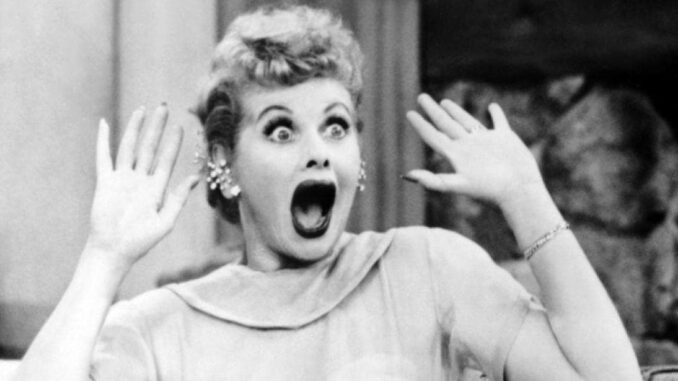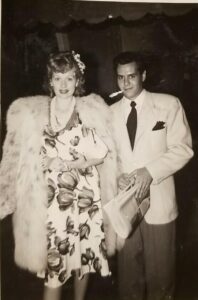
Introduction: More Than Just Laughter
When we think of I Love Lucy, we picture Lucille Ball’s comedic genius, the lovable antics of Ricky Ricardo, and the iconic chocolate factory scene. But behind the laughter, the show’s set was far from the cheerful world portrayed on screen. From personal struggles to professional conflicts, the behind-the-scenes reality of I Love Lucy reveals a much darker side.
Let’s dive into the surprising secrets that cast a shadow over this beloved sitcom.
The Pressure of Perfection
Lucille Ball’s Relentless Work Ethic
Lucille Ball wasn’t just the star of the show—she was its backbone. Known for her perfectionism, she would often spend hours rehearsing scenes to ensure every joke landed perfectly. This dedication came at a cost, as it created tension among the cast and crew.
Desi Arnaz’s Dual Role
While Arnaz played the lovable Ricky Ricardo on screen, off-screen, he wore many hats as the show’s producer. The pressure to deliver high ratings and manage production led to constant stress, which often spilled into his personal life.
A Marriage Under Strain
The Real-Life Tension Between Lucy and Ricky
Lucille Ball and Desi Arnaz’s on-screen chemistry masked the real challenges in their marriage. Desi’s infidelity and struggles with alcoholism were open secrets in Hollywood, creating a volatile dynamic between the couple.
How the Show Tried to Save Their Marriage
Ironically, I Love Lucy was created as a way to keep their marriage intact. The idea was to give them more time together, but the constant proximity only magnified their issues.
The Challenges of Breaking Barriers
A Groundbreaking Interracial Couple
At a time when interracial relationships were still taboo, I Love Lucy broke barriers by casting Arnaz, a Cuban-American, as Lucy’s husband. However, this decision wasn’t without backlash. Network executives initially opposed the casting, fearing it would alienate viewers.

Fighting for Representation
Lucille Ball stood her ground, insisting that Arnaz play her on-screen husband. This decision not only made television history but also showcased Ball’s unwavering support for her husband’s talent.
Behind-the-Scenes Rivalries
Tension Between Cast Members
While Lucy and Ethel’s friendship warmed hearts on screen, their real-life relationship was far more complicated. Vivian Vance, who played Ethel, reportedly resented being cast as a frumpy sidekick, especially since she was younger and more glamorous than her character.
The Studio’s Role in Creating Drama
The studio often fueled these tensions by enforcing strict contracts and controlling the actors’ public images. This added strain to an already high-pressure environment.
Financial Feuds
The Birth of Desilu Productions
Lucille Ball and Desi Arnaz co-founded Desilu Productions, which gave them creative control over the show. However, managing a production company while starring in a hit series created financial and emotional stress.
The Fight for Syndication Rights
One of the smartest moves Desilu made was retaining ownership of the show’s syndication rights. This decision eventually made them millions but not without heated negotiations and battles with the network.
Health Struggles on Set
Lucille Ball’s Physical Demands
Comedy often requires physicality, and Ball’s slapstick routines took a toll on her health. From minor injuries to sheer exhaustion, the physical demands of her role were immense.
Desi Arnaz’s Declining Health
Arnaz’s heavy drinking and smoking began to affect his health during the show’s run, adding another layer of difficulty to their already strained relationship.
Secrets Hidden from Fans
The Pregnancy Controversy
When Lucille Ball became pregnant during the show’s second season, it was groundbreaking to depict a pregnant woman on television. However, the network forbade the use of the word “pregnant,” opting for “expecting” instead.
Censoring Reality
This censorship highlighted the era’s conservative values and the lengths the show had to go to maintain its family-friendly image.
The End of an Era
The Show’s Abrupt Conclusion
Despite its success, I Love Lucy ended after six seasons. The official reason was the couple’s desire to focus on their family, but insiders believe their crumbling marriage played a significant role.
The Legacy of ‘I Love Lucy’
Though the show ended, its impact on television history is undeniable. It paved the way for future sitcoms and cemented Ball and Arnaz as industry legends.
Conclusion: The Shadows Behind the Spotlight
While I Love Lucy brought joy to millions, its behind-the-scenes reality was far from picture-perfect. The struggles, tensions, and sacrifices made by its cast and crew remind us that even the brightest stars have their shadows. Yet, despite these challenges, the show’s legacy endures, proving that great art often comes from great adversity.
FAQs
1. Why did Lucille Ball and Desi Arnaz divorce?
Their marriage faced numerous challenges, including Arnaz’s infidelity and struggles with alcoholism, which eventually led to their divorce in 1960.
2. Was Vivian Vance really unhappy with her role?
Yes, Vance reportedly resented being cast as the older, less glamorous Ethel and often clashed with producers over her character’s portrayal.
3. Did ‘I Love Lucy’ break any records?
Yes, it was the first show to be filmed in front of a live audience using multiple cameras, revolutionizing the sitcom format.
4. How did the show handle Lucille Ball’s pregnancy?
The show depicted Ball’s pregnancy, a groundbreaking move at the time, but avoided using the word “pregnant” due to network censorship.
5. What is the lasting impact of ‘I Love Lucy’?
The show remains a cultural icon, influencing countless sitcoms and showcasing the comedic genius of Lucille Ball. Its innovative production techniques and storytelling continue to inspire television creators today.